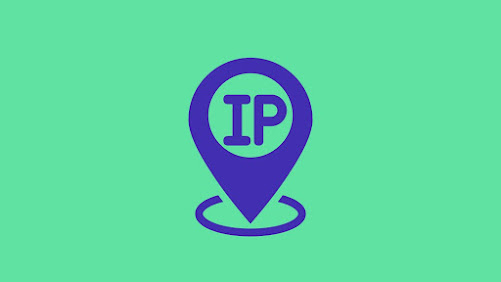Whats IP means? (Internet Protocol) Internet Protocol (IP) is the method or protocol by which data is sent from one computer to another on the internet. Each computer -- known as a host -- on the internet has at least one IP address that uniquely identifies it from all other computers on the internet. Why is IP used? In essence, IP addresses are the identifier that allows information to be sent between devices on a network: they contain location information and make devices accessible for communication. The internet needs a way to differentiate between different computers, routers, and websites.
WHAT IS MY IP
In the digital age, where connectivity reigns supreme, understanding the nuances of your IP address is paramount. From troubleshooting network issues to enhancing online security, your IP address plays a pivotal role in your internet experience. In this article, we delve into the intricacies of “my IP,” exploring what it is, how to find it, and why it matters.
What is My IP Address?
When you connect to the internet, your device is assigned both a private and a public IP address.
My Public IP Address
Among the two, your public IP address is the one visible to the outside world. It’s assigned to you by your Internet Service Provider (ISP) and is used for communication between your device and other devices on the internet. Your public IP address is akin to your digital street address, allowing data packets to find their way to your device across the vast expanse of the internet.
How to Find My Public IP Address
Finding your public IP address is a simple task, and there are several methods you can use to accomplish it:
1. Search Engine Query
One of the easiest ways to find your public IP address is by performing a quick search engine query. Simply type “what is my IP” into your preferred search engine, and the results will display your public IP address at the top of the page.
2. Command Line
For those comfortable with a bit of technical know-how, you can use the command line interface on your computer to find your public IP address. On Windows, open Command Prompt and type “ipconfig.” On macOS or Linux, open Terminal and type “ifconfig” or “ip addr.” Your public IP address should be listed among the network interface information.
3. Online IP Lookup Tools
Alternatively, there are numerous websites dedicated to providing information about IP addresses. You can visit one of these sites and they will automatically display your public IP address without the need for any command line wizardry.
Why Knowing My IP Address Matters
Understanding your IP address is not just a matter of technical curiosity; it has practical implications for your online experience:
1. Network Troubleshooting
Knowing your IP address can help diagnose network issues. If you’re experiencing connectivity problems, knowing your IP address can assist technical support in identifying and resolving the issue more efficiently.
2. Security
Your IP address can reveal your approximate geographical location, which may pose privacy concerns for some users. Additionally, knowing your IP address can help you monitor for any unauthorized access or suspicious activity on your network, allowing you to take appropriate security measures to protect your online presence.
3. Geo-Location Services
Some online services use your IP address to customize content based on your geographical location. By knowing your IP address, you can ensure that you’re receiving the most relevant and localized content and services available.
Conclusion
In conclusion, your IP address is a fundamental component of your online identity. Understanding what it is, how to find it, and why it matters can empower you to navigate the digital landscape more effectively. Whether you’re troubleshooting network issues, enhancing your online security, or accessing geo-specific content, knowledge of your IP address is key to maximizing your online experience.
If you want to read more inform

